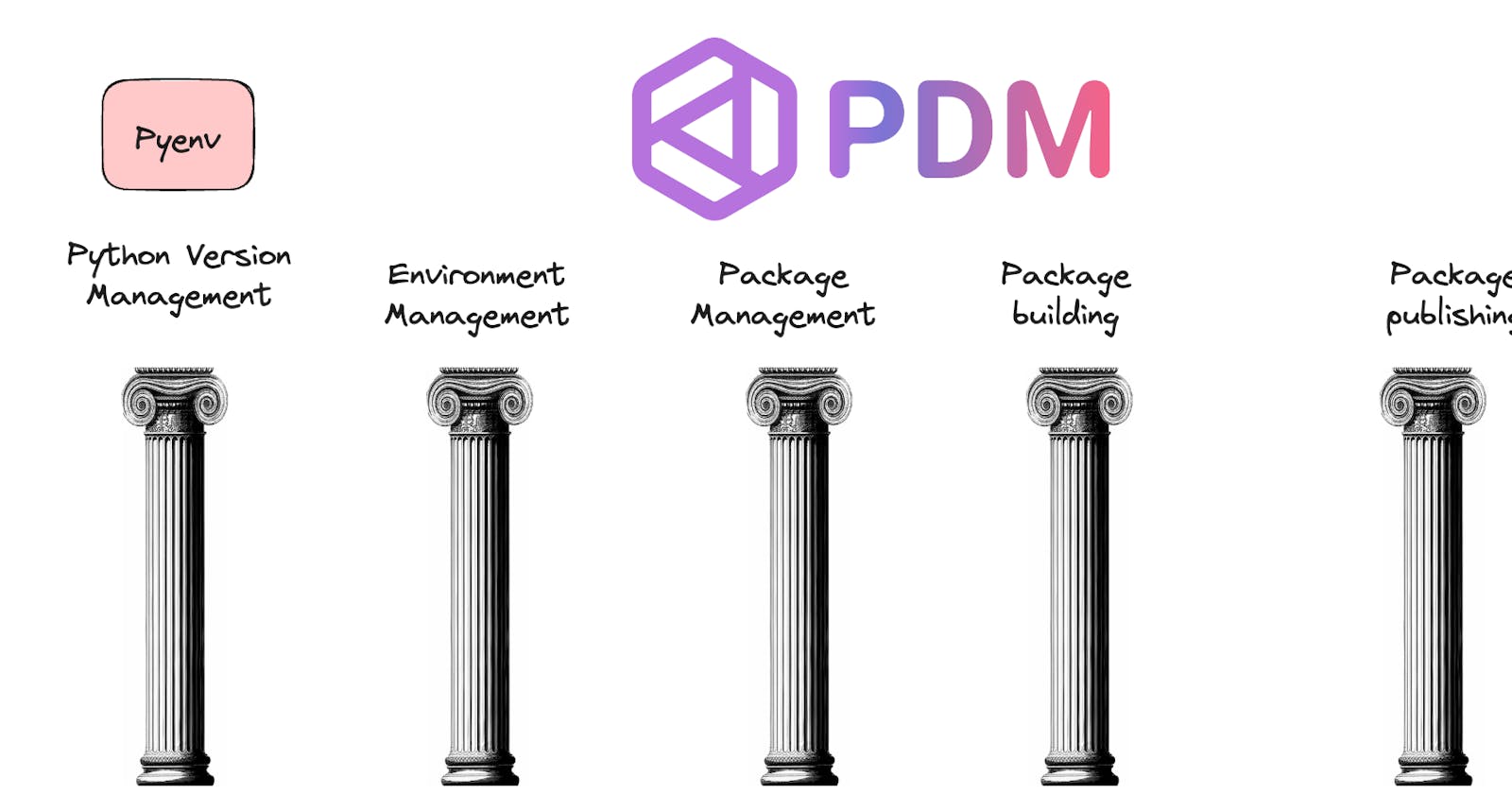Python setup is very painful since it has millions of ways to do the same thing.

You can install Python via,
install python from their official site
Install Python via homebrew or another package manager
install via third-party tools like
pyenvinstall via
conda
You can install python packages via,
pipcondapoetry
You can manage your Python environment via,
venvcondavirtualenv
It's a mess! As someone I forgot the name said on Twitter,
The greatest mind of our generation is figuring out how to set up Python environment properly.
I stumbled across Anne Lena's post and talk Python to Me podcast An Unbiased Evaluation of Python Environment and Packaging Tools, it is a very good post and I highly recommend you to read it. I have tried most of the tools she mentioned in the post for fun.
In this post, I will try to summarize what I have learned from playing with these tools and her post, and give you a lazy-man guide on what I end up using to save you some time.
5 Pillars of Python Environment Management
As said in Anne Lena's post, there are 5 pillars of Python environment management and her image is illustrated here,

The 5 pillars are,
python version management
python package management
python environment management
build a package
publish a package
What I end up using and why
My goal is to figure out tool stacks to manage Python environment for docker-would-be-a-overkill kinda scenarios.
use as few tools as possible
use the tools with good support and adhere to PEP standard
I ended up using the following tool stack,
| pillars | tool |
| python version management | pyenv |
| python package management | pdm |
| python environment management | pdm |
| build a package | pdm |
| publish a package | pdm |

pyenv for managing python version is a no brainer, and i don't wish to use apt-get or brew to install system python and you will be confused when you have more than one python version installed on your system. Like this
$ brew list | grep python
python@3.11
python@3.12
Instead you can have,
$ pyenv versions
system
* 3.7.10 (set by /Users/adamzhang/.pyenv/version)
3.8.16
3.9.1
3.9.17
3.10.12
3.11.4
You could easily switch between different python version with pyenv and it is very easy to install a new python version with pyenv.
As for the rest of 4 pillars, we have some candidates to do both 4 tasks,
poetry
pdm
rye
The conclusion is,
| - | poetry | pdm | rye |
| Does the tool manage dependencies? | ✓ | ✓ | ✓ |
| Does it resolve/lock dependencies? | ✓ | ✓ | ✓ |
| is there a clean build/publish flow? | ✓ | ✓ | ✓ |
| does it allow to use plugins? | ✓ | ✓ | ✗ |
does it support PEP 660 (editable install like pip install -e .) | ✓ | ✓ | ✓ |
| does it support PEP 621 (project metadata) | ✗ | ✓ | ✓ |
| number of stars on github | 27600 | 5600 | 7600 |
pdm is a winner for checking all the boxes and conforming to PEP standard. It is also able to detect all python versions installed by pyenv, brew and system install like this,
1. /Users/adamzhang/.pyenv/shims/python3 (3.7)
2. /Users/adamzhang/.pyenv/shims/python (3.7)
3. /opt/homebrew/bin/python3.12 (3.12)
4. /Users/adamzhang/.pyenv/shims/python3.11 (3.11)
5. /opt/homebrew/bin/python3.11 (3.11)
6. /Users/adamzhang/.pyenv/versions/3.11.4/bin/python3.11 (3.11)
7. /opt/homebrew/Caskroom/miniconda/base/bin/python3.10 (3.10)
8. /Users/adamzhang/.pyenv/shims/python3.10 (3.10)
9. /Users/adamzhang/.pyenv/versions/3.10.12/bin/python3.10 (3.10)
10. /Users/adamzhang/.pyenv/versions/3.9.17/bin/python3.9 (3.9)
11. /usr/bin/python3 (3.9)
12. /Users/adamzhang/.pyenv/versions/3.9.1/bin/python3.9 (3.9)
13. /Users/adamzhang/.pyenv/versions/3.8.16/bin/python3.8 (3.8)
14. /Users/adamzhang/.pyenv/versions/3.7.10/bin/python3.7m (3.7)
15. /Users/adamzhang/.pyenv/versions/3.7.10/bin/python3.7 (3.7)
16. /Users/adamzhang/.pyenv/shims/python3.7m (3.7)
17. /Users/adamzhang/.pyenv/shims/python3.7 (3.7)
18. /opt/homebrew/Cellar/python@3.12/3.12.0/Frameworks/Python.framework/Versions/3.12/bin/python3.12 (3.12)
Some concerns for pdm is that it is not as popular as poetry or as shiny as rye, but it is still a very good tool.
My personal take for others are that,
poetry: good tool but their dev break back compatibility too often without any warning and break people's CI, interesting to know moreportal here to Anthony, my fav python developer.rye: it's very new. It even does Python version management. I will let it marinate for a while before I use it.
Summary
In this blog, I talked about my minimal-ish Python set-up tool and the reason behind it.
But remember, there is no best tool, only the tool that fits your needs and fits your team's needs. (team > you)
